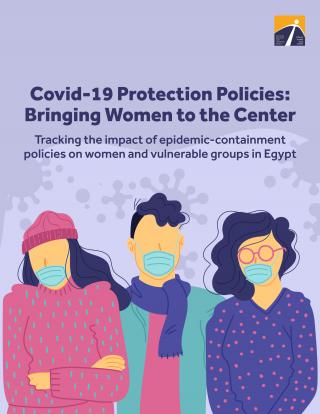Files: Gender and Human Rights
On Monday, March 6, the Second Criminal Circuit, presided by Judge Moataz Khafaji, decided to release pharmacist Isis Mustafa, who was imprisoned in connection with Case 2214/2021.
On Sunday, October 30th, the Mansoura Economic Misdemeanors Court ruled in the case of defamation and threats to the victim in an incident of mob sexual assault in the city of Meet Ghamr, which took place in December 2020.
The undersigned organizations renew their call for the Egyptian authorities to stop these trials, including the human trafficking case against Hossam and al-Adham, and release the defendants who continue to be held in pretrial detention been sentenced to imprisonment in connection with these cases. In addition to guaranteeing freedom of expression, including on the internet, and to stop employing the Law's vague provisions on Combating Information Technology Crimes to infringe on digital rights.
Everyone has the right to life-saving interventions during or outside of crises.[ii] And yet, women and girls’ rights to bodily autonomy and safe abortion have been some of the first rights to be conveniently sacrificed under the guise of prioritizing COVID, as if health was a zero-sum game. That includes free, safe and legal abortion and comprehensive abortion and post-abortion care, without which women, girls and gender-non-conforming persons are forced to seek unsafe clandestine abortions or to carry unwanted pregnancies to term, in complete violation of our rights.
In times of major social crisis, a gendered and feminist perspective exposes the priorities and biases of public policy. It is also an important lens for evaluating the capacity of policies -or lack thereof- to meet the needs of women and vulnerable social groups as a whole, while highlighting their disproportionate impact on these groups, which constitute the majority of the population. For these reasons, today we launch a gender tracker to monitor the impact of the COVID-19 epidemic on women and other vulnerable social groups in Egypt. We hope that a gendered perspective will allow opportunities to remedy measures that do not consider gendered impacts or avoid public policies that could harm certain groups
The Anti-FGM Taskforce is sadened and angered by the death of Nada, a 12-year-old girl, in the village of al-Hawatka in Assiut governorate. The girl died after undergoing female genital mutilation (FGM), at the private clinic of an obstetrician-gynecologist on Wednesday, 29 January 2020
We stress on that the source of this serious issue is the absence of a legislation that activates the constitutional article, without disruption to the rest of the constitutional articles that prohibit discrimination on the basis of sex and guarantee freedom of belief for all without discrimination, as well as the vagueness of the current legal system which opens the door to a such serious violation.
The Prisons’ Authority forced al-Helw to undergo a full external physical examination and inspection of her genitals, conducted by doctors at a general hospital, against her will and without medical grounds, which constitutes a clear assault on her bodily and psychological safety.




